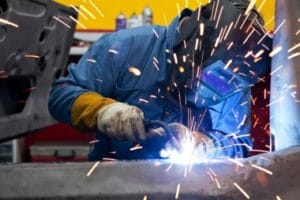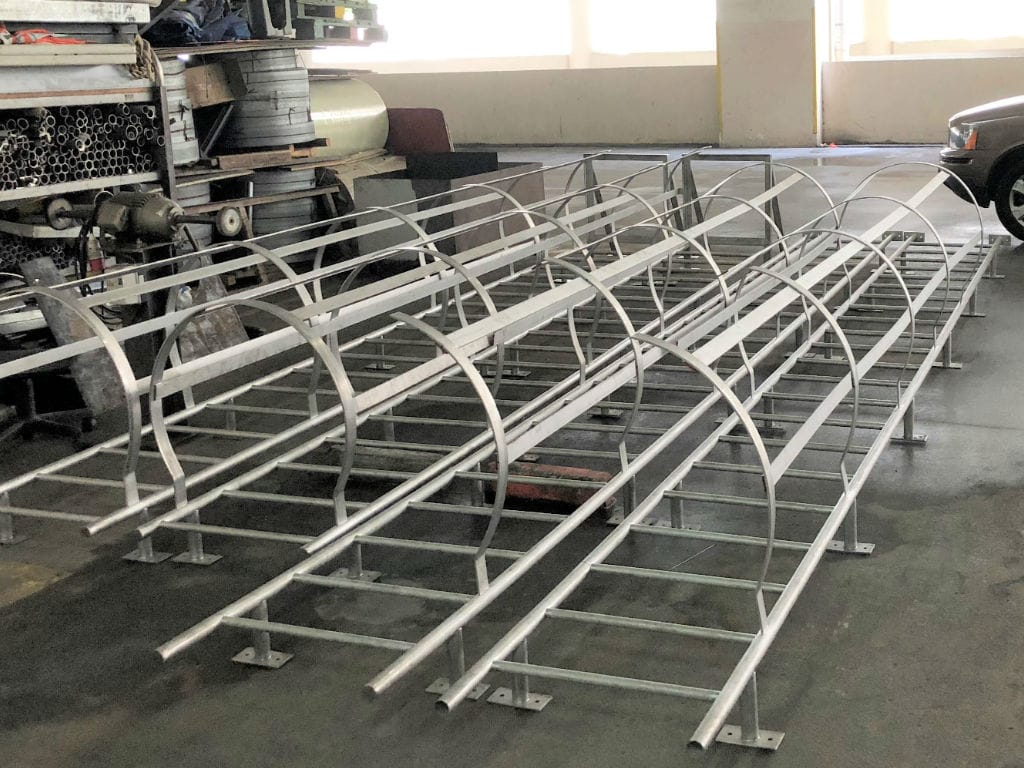

Fabrication and manufacturing terms are frequently used on an interchangeable basis. However, they are different procedures with distinct objectives, methods, and outcomes. Utilising techniques such as forging, casting, and machining, manufacturing entails converting essential components into finished products. Fabrication involves techniques such as riveting, bending, and cutting to assemble prefabricated components to produce a final product. This blog will examine the distinctions in custom metal works Singapore through fabrication and manufacturing.

Manufacturing is an extensive procedure that involves multiple steps to transform basic materials into a finished item. It begins with sourcing and acquiring raw materials, then proceeds to the engineering and design phase, determining product requirements. Once the design is finalised, manufacturing encompasses the
In manufacturing, the emphasis is on creating a large quantity of identical products efficiently and cost-effectively. It is mainly used to make products in high demand and needs to keep up with standardised specifications. Automotive, electronics, consumer products, and pharmaceuticals are just some industries that benefit from manufacturing.
Manufacturing processes are highly automated, using robotics, sophisticated machinery, and assembly lines to optimise production and accomplish economies of scale. This automation enables consistent output, decreased labour costs, and enhanced responsiveness to market demand.

Fabrication can be defined as the process of assembling ready-made parts to produce a finished product. It is a process that incorporates cutting, joining and shaping techniques to create a unique finished product from raw materials. Fabrication is mainly used for personalised or specialised items in which attention to detail is crucial.
Fabrication has applications in numerous industries, such as metalworking, construction, furniture making, and the arts. For instance, in the metalworking sector, fabricators create customised parts, equipment and structures based on design specifications. In the building sector, fabrication is used to create one-of-a-kind architectural elements, bespoke metalwork, and specialised components. Fabrication processes frequently necessitate skilled labour, specialised apparatus, and manual dexterity to ensure the proper assembly of elements according to accurate specifications.
Manufacturing and fabrication are distinguished by several important distinctions that affect the product's quality, lead time and cost.
Customisation
Customisation plays a crucial function in the first place. Producing standardised goods for a large consumer base is the primary objective of manufacturing. Therefore, they concentrate more on efficiency, consistency, and cost-effectiveness. Fabrication meets specific consumer requirements or design specifications, resulting in unique, custom-made products. Fabrication permits flexibility, allowing for the fulfilment of specific consumer preferences and needs.
Production
Manufacturing and fabrication involve distinct production processes. Automation in manufacturing processes permits dependable production, cost-effectiveness and high output rates. In contrast, fabrication requires manual labour, artisanal talent, and specialised equipment. Fabricators use techniques such as welding, bending, and cutting to construct and form materials in accordance with specified design specifications. The manual process involved in fabrication gives way to a better focus on specifics and greater flexibility, and therefore the fabrication process takes additional time and labour compared to automated manufacturing processes.
Cost factor
Cost considerations distinguish manufacturing from fabrication. The manufacturing processes are optimised for economies of scale to efficiently produce large quantities of identical goods at a reduced unit cost. It is a well-known fact that automated and standardised processes with optimised supply chains contribute to cost reduction. Fabrication is comparatively expensive because it takes up customisation, relies more on skilled labour and specialised equipment, and needs to adhere to specific design specifications. Therefore, fabrication also results in longer lead times.
Summary
Manufacturing and fabrication are separate processes, each with its own applications and characteristics. Fabrication entails customising and assembling prefabricated components to create one-of-a-kind products, whereas manufacturing focuses on transforming raw materials into finished goods. Understanding the distinctions between manufacturing and fabrication is essential for businesses to select the most appropriate approach based on product specifications, volume, customisation requirements, and cost considerations. By utilising the appropriate process, businesses can optimise their products' quality, lead time and cost-effectiveness, ending with higher customer satisfaction and more significant business success. Get in touch with Brooklynz stainless steel Pte Ltd, whether it is through mass production or customised stainless steel fabrication Singapore, as both processes are essential to meeting the diverse requirements of industries and consumers.

Brooklynz Stainless Steel Pte Ltd is a specialized tier 1 stainless steel fabricators involved in the design, fabrication & installation of customized stainless steel products for construction projects.
Brooklynz provides an end to end solution for all types of stainless steel works across all sectors that employ heavy steel structures.